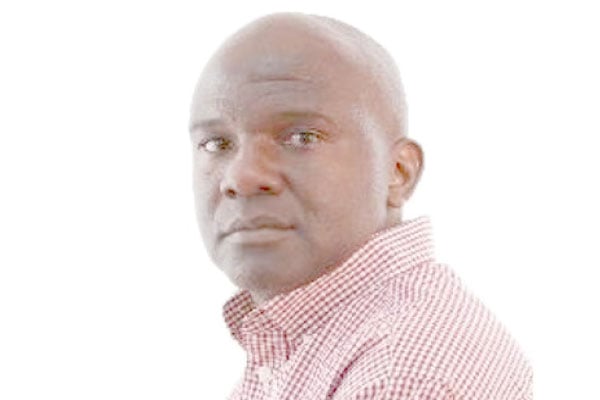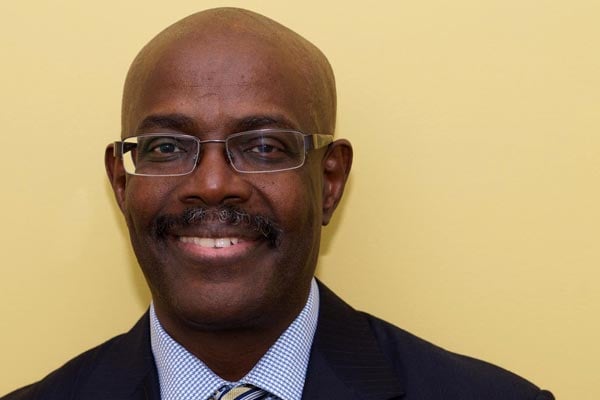Prime
Uganda’s changing fortunes from Amin to Among

Author, Nicholas Sengoba. PHOTO/FILE
What you need to know:
- One of the ways in which power is apparently manifested is through an exaggerated show of wealth and authority.
Over the weekend a video clip went viral. It showed the Speaker of Uganda’s 11th Parliament, Ms Anita Annet Among, arriving at the steps of the August house, in style.
Looking resplendent and absolutely dapper in a well cut red and purple outfit, she drove herself at the wheels of a black Mercedes Benz with a personalised number plate, AAA1. In tow, was the official billion shillings black Mercedes Benz and other escort vehicles.
Like a scene in a movie, Among eases out of the Mercedes after a female aide opens her door, hands over the car keys, dusts her hands as a coterie of aides in dark suits usher her into the building. Meanwhile in the background heavily armed men stick out like sore thumbs and mill around just in case.
Riding a long convoy of cars at a time when fuel and other commodity prices have gone sky high, miffed many on social media. They thought it was a display of urban excitement, arrivalism and insensitivity. But others claimed that she is entitled to comfort and security and all you saw, however excessive, was ‘budgeted for’. This group branded the former, ‘jealous!’
It took me more than 40 years back in time. Right from the time of former president Field Marshal Idi Amin Dada (RIP) Uganda has had a very interesting history when it comes to ownership and display of wealth, prosperity, happiness and power relations.
FIND ARTICLE: Why Idi Amin went but also stayed
When Idi Amin came to power in 1971 after he deposed Milton Obote, there was gradually a societal shift in fortunes. The products of ‘work hard in school to be successful in life’, found themselves slowly moving to the periphery.
Partly, the government dominated by semi literate soldiers found discomfort dealing with the educated. So they kept the company of their own.
But most importantly, as the narrative of gross human rights abuses grew and many fled into exile, the West isolated Uganda and piled economic sanctions. The salary earners were suffocated. Doctors, university lecturers, teachers, civil servants, among others, were left holding an empty bag.
Meanwhile to strengthen his position, Amin ensured that his army was well catered for. There were the army shops with heavily subsidized goods for exclusive use by the army.
In fact when in the mid 70s Amin set up the Uganda Air Cargo with the huge C130 plane and others, one of their main preoccupations was to ferry in sundries and supplies for the consumption of mainly soldiers. Soldiers did not pay fare on the state owned Uganda Transport Company buses or trains operated by Uganda Railways.
They had free medical treatment in the hospitals. They also had army schools in the barracks for the children of soldiers. The soldier was generally well off. So good it was, that the late Maj Gen Kasirye Ggwanga once claimed he joined the Uganda Army because men in uniform at that time were so well off financially that they easily attracted damsels.
With the army sorted, Amin tried to prove to the world after the shock of the 1972 expulsion of the Asians that Ugandans could run their economy. So there was the operation ‘Mafuta Mingi’, which was an attempt to create a middle or business class. Agents received allocations from the government owned wholesale companies; Fresh Foods and Foods and Beverages.
Theirs was to retail essential commodities at fixed prices throughout the economy. They were given what were called allocations. So you had designated beer, soda, sugar, salt, tea, radio, whiskey, television suppliers.
There was also the group to whom foreign exchange was allocated to travel abroad to import essential commodities and supplies badly needed in the economy. This group practised magendo. Etymology of the word being ‘engendo’ or travels for importation. They were facilitated and shielded from all sorts of hurdles to ensure that they efficiently traded and kept prices low. At some point Magendoist landed in trouble with Amin because they hoarded, causing artificial scarcity, to gain from higher prices.
To survive in this jungle the ‘work hard at school’ group mentioned above had to accept humiliation. They moonlighted using the family car as a taxi. Kept good relations with some of the mafuta mingi to sell them rare beers and other scarce commodities which they resold in garages in the neighbourhood which gave rise to the concept of omwenge ogo mu bitanda (alcohol kept and sold under the bed) and ultimately the ‘Kafunda’ unlicensed bars where people would sit and drink then walk home for economic and security reasons.
There was also a class of hangers on called ‘balebeesi’ who kept around soldiers and those connected to the people with economic and political power. You became one and made things move. Some even converted to Islam taking on neutral names like Moses, Miriam, David and Sarah. This is where the power was and it was built around scarcity.
Meanwhile as the Mafuta mingi and Magendo class prospered, they were the victims of Amin’s army. The army that was well looked after for food, clothes and the likes satisfied their greed by stealing from this group which was the one with money not the ordinary people who were poor.
So you had to humble yourself and not show off your wealth. In those days most people drove brand new cars. To shield themselves against the eyes of soldiers it was common to dent one’s vehicle intentionally to make it unattractive to gun wielding thieving soldiers. A culture of not flaunting wealth and power grew.
When history disposed of Amin and finally NRM happened, scarcity became history. The Mafuta mingi and Magendoists vanished like the Bachwezi.
With the prevailing neo-liberal policies where the market moves things, power shifted from the lowly soldiers and those allocating essential commodities. It is now with the policy maker, implementer and those beholden to them.
The fight for political space is partly a result of this, for neo liberalism is enhanced by supremacy in politics. The supreme allocate access to economic resources and their distribution. It is now time for the elite, the educated, public servants and politicians near power.
One of the ways in which power is apparently manifested is through an exaggerated show of wealth and authority. Block the roads, ride along convoy and occasionally do some maverick stuff as you build a network.
Speaker Among, to many, is a Jonny-come-lately in the NRM setup. She has to build her profile as ‘one of them’ and you just don’t do that by hiding away from the headlines. You must make them and be seen to make them.
Mr Sengoba is a commentator on political and social issues
Twitter: @nsengoba




